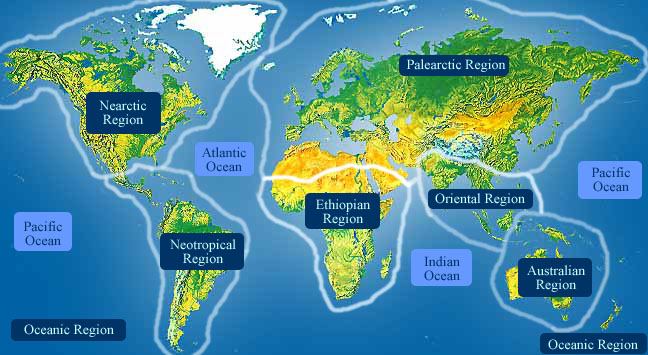Thelotornis kirtlandiiForest Vine Snake, Bird Snake, Twig Snake
Geographic Range
Southern Tanzania to Mozambique and Zimbabwe, south to Transvaal to northern Botswana into South West Africa and into Angola.
Habitat
The bird snake lives all of its life in trees.
- Terrestrial Biomes
- scrub forest
Reproduction
This oviparous species lays six to ten eggs in mid-summer. The eggs are four centimeters long by two centimeters wide. The young hatch months later at a length of 25 cm.
Behavior
This shy species will retreat at almost any threat, but it is extremely vicious when cornered. The throat is inflated to create fear and surprise in enemies. It has a very elaborate swaying movement associated with prey immobilization.
Food Habits
The arboreal Bird Snake eats any small animal found in the trees, preferring lizards but also taking mice or frogs when possible. Despite its name, it seldom feeds on birds.
Economic Importance for Humans: Positive
It probably helps to control the population of arboreal rodents and lizards, playing a key role in the food web.
Economic Importance for Humans: Negative
The Bird Snake is extremely poisonous; its deadly venom causes some human deaths in its range.
Other Comments
These snakes are characterized by fangs located near the rear of the mouth. Unlike that of most of its relatives, however, the venom of the Bird Snake is quite potent, causing massive internal bleeding and lesions under the skin. A special serum was developed to combat its. Like all other members of its family, however, after biting it clings to its prey until the venom has taken affect. This species has particularly good vision, perhaps even binocular. Its colorization helps disguise it as a twig.
Although the bird snake is docile by nature and rarely bites, it should be avoided as much as possible. It has quite possibly the most potent venom of any snake in Africa, and the snake is greatly feared for that reason.
Contributors
Chad H. Mummert (author), University of Michigan-Ann Arbor.
Glossary
- Ethiopian
-
living in sub-Saharan Africa (south of 30 degrees north) and Madagascar.

- native range
-
the area in which the animal is naturally found, the region in which it is endemic.
- scrub forest
-
scrub forests develop in areas that experience dry seasons.
References
FitzSimons,V.F.M. A Field Guide to the Snakes Of Southern Africa. Cape and TransvaalPrinters (Pty) Ltd, Cape Town 1970.